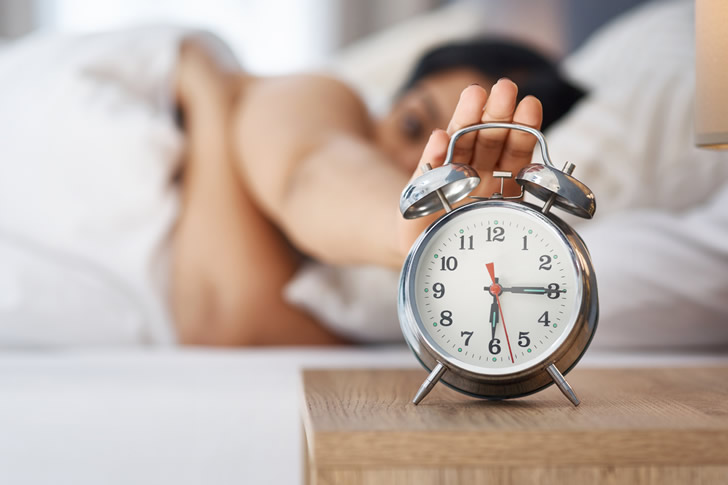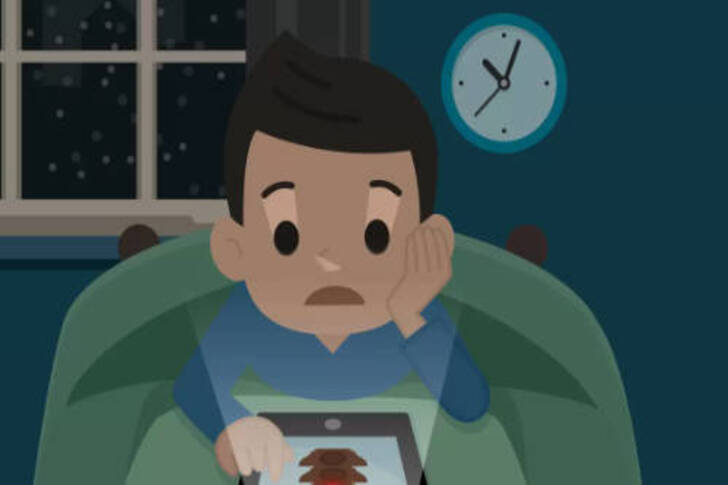6 Ways To Improve Sleep Quality
Improving sleep quality is essential for maintaining overall health and well-being. A good night’s sleep can enhance mood, boost cognitive function, and strengthen the immune system. Here are seven effective methods to improve sleep quality, each offering practical tips and strategies to help you achieve restful and rejuvenating sleep.
1Watch Your Diet and Hydration
0 votes

Your diet and hydration habits can significantly impact your sleep quality. To promote better sleep, try to avoid large meals, caffeine, and alcohol close to bedtime. Eating a heavy meal late in the evening can cause discomfort and indigestion, making it harder to fall asleep. Instead, opt for a light snack if you’re hungry before bed. Caffeine and nicotine are stimulants that can interfere with your ability to fall asleep, so it’s best to avoid them in the late afternoon and evening. While alcohol might make you feel drowsy initially, it can disrupt your sleep cycle and reduce the quality of your rest. Staying hydrated throughout the day is important, but try to limit fluid intake in the evening to reduce the likelihood of waking up during the night to use the bathroom. A balanced diet that includes sleep-promoting nutrients like magnesium, tryptophan, and melatonin can also support better sleep.
0
Do you agree? 0% of people agree with your point of view!
2Create a Sleep-Friendly Environment
0 votes

Creating a sleep-friendly environment is crucial for achieving restful sleep. Start by ensuring your bedroom is cool, quiet, and dark. A room temperature between 60-67 degrees Fahrenheit (15-19 degrees Celsius) is considered ideal for sleep. Use blackout curtains or an eye mask to block out light, and earplugs or a white noise machine to minimize noise disturbances. Investing in a comfortable mattress and pillows that provide adequate support can also significantly impact your sleep quality. Additionally, keeping electronic devices out of the bedroom can reduce distractions and exposure to blue light, which can interfere with your body’s production of melatonin, the hormone that regulates sleep. Keeping your bedroom tidy and clutter-free can create a more relaxing and inviting atmosphere, making it easier to unwind and fall asleep.
0
Do you agree? 0% of people agree with your point of view!
3Use Sleep Aids Wisely
0 votes

Using sleep aids wisely can help improve sleep quality when used appropriately. Over-the-counter sleep aids and prescription medications can be effective for short-term use, but they are not typically recommended for long-term sleep management. Natural supplements like melatonin can also help regulate sleep patterns, especially for those with jet lag or shift work. It’s important to consult with a healthcare professional before using any sleep aids to ensure they are safe and appropriate for your situation. Non-pharmacological aids such as white noise machines, sleep masks, and weighted blankets can also enhance sleep by creating a more conducive environment for rest. Practicing good sleep hygiene, such as maintaining a regular sleep schedule, creating a relaxing bedtime routine, and keeping your sleep environment comfortable, can reduce the need for sleep aids and promote more sustainable, long-term improvements in sleep quality.
0
Do you agree? 0% of people agree with your point of view!
4Manage Stress and Anxiety
0 votes

Managing stress and anxiety is crucial for improving sleep quality. Chronic stress and anxiety can lead to difficulties falling asleep and staying asleep. Incorporating relaxation techniques into your daily routine can help calm your mind and prepare your body for sleep. Practices such as deep breathing exercises, progressive muscle relaxation, and mindfulness meditation can reduce stress levels and promote relaxation. Establishing a pre-sleep routine that includes activities like reading, listening to soothing music, or taking a warm bath can signal to your body that it’s time to wind down. Additionally, keeping a journal to write down your thoughts and worries before bed can help clear your mind and reduce nighttime anxiety. If stress and anxiety persist, consider seeking support from a mental health professional who can provide guidance and coping strategies tailored to your needs.
0
Do you agree? 0% of people agree with your point of view!
5Exercise Regularly
0 votes

Regular exercise is one of the most effective ways to improve sleep quality. Physical activity helps regulate your body’s internal clock, reduces stress, and promotes deeper sleep. Aim for at least 30 minutes of moderate exercise most days of the week, but try to avoid vigorous workouts close to bedtime, as they can increase alertness and make it harder to fall asleep. Activities like walking, swimming, cycling, and yoga are excellent options that can help enhance sleep. Morning or early afternoon workouts are ideal, as they help reset your circadian rhythm and boost energy levels for the day. In addition to traditional exercise, incorporating relaxing activities such as stretching or tai chi into your routine can help calm your mind and prepare your body for a restful night’s sleep.
0
Do you agree? 0% of people agree with your point of view!
6Establish a Consistent Sleep Schedule
0 votes

One of the most effective ways to improve sleep quality is to establish a consistent sleep schedule. Going to bed and waking up at the same time every day helps regulate your body’s internal clock, making it easier to fall asleep and wake up naturally. Consistency reinforces your sleep-wake cycle, promoting better sleep patterns. To set a consistent schedule, choose a bedtime that allows for 7-9 hours of sleep and stick to it, even on weekends. Creating a relaxing bedtime routine can also signal your body that it’s time to wind down. Activities such as reading, taking a warm bath, or practicing meditation can help ease the transition to sleep. Avoiding stimulants like caffeine and nicotine in the hours leading up to bedtime can further support your efforts to maintain a regular sleep schedule.
0
Do you agree? 0% of people agree with your point of view!
7Limit Exposure to Blue Light
0 votes

Limiting exposure to blue light in the evening is a key strategy for improving sleep quality. Blue light, emitted by electronic devices such as smartphones, tablets, and computers, can interfere with the production of melatonin, the hormone responsible for regulating sleep. To reduce the impact of blue light, try to avoid using electronic devices at least one hour before bedtime. If you need to use your devices in the evening, consider enabling the blue light filter feature, which reduces the amount of blue light emitted. Additionally, you can invest in blue light blocking glasses, which are designed to filter out blue light and protect your eyes. Engaging in relaxing activities such as reading a physical book, practicing gentle yoga, or listening to calming music can help prepare your mind and body for sleep without the disruptive effects of blue light.
0
Do you agree? 0% of people agree with your point of view!







Recent Comments